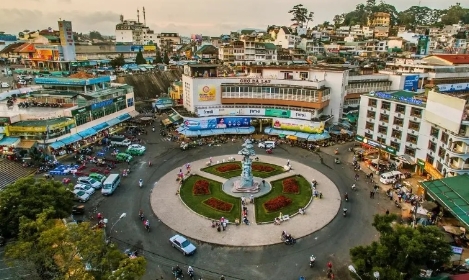英国应该接受更多的净移民,还是重新思考经济?
正文翻译
Should the UK embrace higher net migration or rethink the economy?
-If the population is to grow on the scale predicted the UK will need the infrastructure to service a much-expanded citizenry
英国应该接受更多的净移民,还是重新思考经济?
——如果人口以预测的规模增长,英国将需要基础设施来为大幅扩大的公民提供服务

(The Office for National Statistics projects the number of people living in the UK will rise from 67 million to 70 million by 2026.)
(英国国家统计局预计,到2026年,英国人口将从6700万增加到7000万。)
新闻:
Tough choices. We must be willing to make tough choices. It is a soundbite heard frequently from politicians, often accompanied by another chestnut: there’s no such thing as a free lunch.
艰难的抉择。我们必须愿意做出艰难的选择。这是政客们经常说的一句话,通常还伴随着另一句老生常谈:天下没有免费的午餐。
Both statements are true. Free lunches are few and far between. There are tough choices that need to be made. But, like most other developed countries in similar circumstances, Britain is reluctant to make them.
两种说法都是正确的。免费午餐少之又少。我们需要做出艰难的选择。但是,就像大多数其他发达国家在类似的情况下一样,英国不愿意做出这样的决定。
Tough choices implies a willingness to make sacrifices and that doesn’t fit well with the west’s “I want it all now” culture. Politicians pander to this. They talk about the need to make tough choices but in fact look for the soft option, because that’s what keeps the punters happy.
艰难的选择意味着愿意做出牺牲,这与西方“我现在就想要”的文化不太相符。政客们迎合了这一点。他们嘴上说需要做出艰难的选择,但实际上却在寻找温和的选择,因为这样才能让赌客们高兴。
The debate over immigration is a case in point. Migration is a hot topic here, as it is in Germany, France, the Netherlands and the US. What’s more, it is certain to remain a salient political issue.
关于移民的争论就是一个很好的例子。移民在这里是一个热门话题,就像在德国、法国、荷兰和美国一样。更重要的是,它肯定仍将是一个突出的政治问题。
Last week, the Office for National Statistics published its latest projections for the size of the UK’s population. These showed the number of people living in the UK rising to 70 million by 2026 – a decade earlier than previously envisaged – and continuing to increase over the following decade to 73.7 million. Net migration – the number of people entering the UK minus the number leaving – is expected to account for more than 90% of the 6.6 million increase in the population between 2021 and 2036.
上周,英国国家统计局公布了对英国人口规模的最新预测。这些数据显示,到2026年,英国的人口将增加到7000万,比此前预计的提前了10年,并在接下来的10年里继续增加到7370万。净移民——进入英国的人数减去离开英国的人数——预计将占2021年至2036年间660万人口增长的90%以上。
Just to be clear, these are not ONS forecasts but rather projections based on net migration of 315,000 from 2028 onwards. This would be much lower than the record 672,000 in the year to June 2023 but significantly higher than in any previous period. When Tony Blair became prime minister in 1997, for example, net migration was 48,000. When David Cameron entered Downing Street in 2010 the figure stood at 256,000.
需要澄清的是,这些不是国家统计局的预测,而是基于从2028年起的31.5万净移民的预测。这将远低于截至2023年6月的一年创纪录的67.2万,但明显高于此前任何时期。比如,1997年托尼·布莱尔出任英国首相时,净移民人数为4.8万人。2010年戴维·卡梅伦入主唐宁街时,这一数字为25.6万。
One response to these projections is to say: what’s the problem? If people from other parts of the world want to come here then they are welcome to come. Migration is globalisation in action: workers from poor countries seeking out job opportunities in countries where they can earn higher wages and enjoy better living standards.
对这些预测的一种回应是:问题出在哪里?如果世界其他地方的人想来这里,我们欢迎他们来。移民是全球化的行动:来自贫穷国家的工人在工资更高、生活水平更高的国家寻找工作机会。
Migrants can make the economy grow faster and they do the jobs home-born workers are reluctant to do. Without migrant workers the care system would collapse and NHS waiting lists would be even longer than they are already. Without foreign students, the higher education system would be in deep financial trouble. Given the UK’s ageing population, it makes no economic sense to put an arbitrary limit on net migration.
移民可以使经济增长更快,他们做着本土工人不愿做的工作。没有外来务工人员,医疗体系将会崩溃,国家医疗体系的等候名单将会比现在更长。没有外国学生,高等教育系统将陷入严重的财政困境。鉴于英国的人口老龄化,武断地限制净移民在经济上是没有意义的。
Let’s assume all the above is correct. Put to one side the fact that much higher levels of net migration have coincided with only weak growth in per capita incomes. Whether or not migration is good for growth, if the UK’s population is to increase on the scale envisaged over the next decade or so, then this country will have to be prepared to build (and pay for) the infrastructure to service a much-expanded citizenry.
让我们假设以上都是正确的。把高得多的净移民水平与人均收入的缓慢增长同时出现这一事实放在一边。无论移民是否有利于经济增长,如果英国人口在未来十年左右的时间里以设想的规模增长,那么这个国家将不得不准备好建设(并支付)基础设施,以服务于规模大幅扩大的公民。
That means more schools, more hospitals, more capacity on the transport network and – most importantly – more houses. The current level of homes built in the UK is about half that of its postwar peak of 425,000 recorded in 1968, a time when the population was 12 million smaller than it is today and 19 million smaller than it is expected to be by the mid-2030s.
这意味着更多的学校,更多的医院,更多的交通网容量,最重要的是——更多的房屋。英国目前建造的房屋数量约为1968年战后峰值42.5万套的一半,当时英国人口比现在少1200万,比预计到本世纪30年代中期的人口数量少1900万。
The supply of homes is already insufficient to meet existing demands and those pressures are only going to increase if the ONS projections are right. And that means, you guessed it, tough choices.
住房供应已经不足以满足现有需求,如果国家统计局的预测是正确的,这些压力只会增加。你猜对了,这意味着艰难的选择。
If housing supply is to keep up with demand it will mean liberalising the planning rules. It might even involve building on the green belt. It will certainly lead to a struggle between whoever is in government and those who think demand can be met simply by developing brownfield sites.
如果要让住房供应跟上需求,就意味着要放开规划规则。它甚至可能涉及在绿化带上建设项目。这肯定会导致政府和那些认为只需开发棕地就能满足需求的群体之间的斗争。
The consequences of a 10% increase in the population without a significant increase in the supply of new homes are obvious: rampant house-price inflation; more overcrowding; ever-higher numbers of children living with their parents into their 30s; more people squeezed into private-rented accommodation, and a growing divide between the housing haves and the housing have nots.
人口增长10%而新房供应没有显著增加的后果是显而易见的:房价飞涨;更加拥挤;越来越多的30多岁的孩子和父母住在一起;越来越多的人挤进了私人租赁的住房,有房者和无房者之间的差距也越来越大。
So how about some serious immigration controls instead? Wouldn’t they be an alternative to concreting over the green belt? In theory, yes. It was not so long ago that annual net migration hovered around zero. In 1990 and 1991, for example, it averaged 40,000 a year; in the following two years it fell by 6,000 a year on average.
那么,采取一些严格的移民控制措施怎么样?难道它们不是在绿化带上修建混凝土的另一种选择吗?理论上,是的。就在不久之前,每年的净移民数还徘徊在零附近。比如,在1990年和1991年,平均每年有4万移民;在接下来的两年里,平均每年下降6000人。
In practice, of course, returning to those levels of net migration would also have consequences. Care homes would need to charge more to attract UK-born workers. Universities would no longer be able to use the fees from foreign students to subsidise those from the UK. Businesses that have come to rely on migrant workers would become unviable.
当然,在实践中,回到那些净移民水平也会产生后果。养老院需要提高收费,以吸引在英国出生的工人。大学将不再能够使用外国学生的学费来补贴来自英国的学生。依赖移民工的企业将无法生存。
Again, one response would be: so what? If the business model of care homes relies on cheap foreign labour and that of universities relies on expensive foreign students then there is something wrong with those business models.
同样,一种回应是:那又怎样?如果养老院的商业模式依赖于廉价的外国劳动力,而大学的商业模式依赖于昂贵的外国学生,那么这些商业模式就有问题。
But while the long-term solution might well be a different economic model – higher wage, higher productivity, more highly automated – getting to that better world will not be easy or cost-free. It means either higher taxes to pay for higher levels of public spending or higher prices for consumers, and quite possibly both.
但是,尽管长期解决方案很可能是一种不同的经济模式——更高的工资、更高的生产率、更高的自动化程度——但要实现那个更美好的世界并非易事,也不是没有成本的。这意味着要么用更高的税收来支付更高水平的公共支出,要么提高消费者的物价,很可能两者兼而有之。
So there’s a choice that has to be made: embrace high levels of net migration and fundamentally rethink housing; or reduce net migration to late 20th-century levels and fundamentally rethink the economy. It can’t be ducked.
因此,我们必须做出选择:接受高水平的净移民,从根本上重新思考住房问题;或者将净移民减少到20世纪后期的水平,并从根本上重新思考经济。这是无法回避的。
-If the population is to grow on the scale predicted the UK will need the infrastructure to service a much-expanded citizenry
英国应该接受更多的净移民,还是重新思考经济?
——如果人口以预测的规模增长,英国将需要基础设施来为大幅扩大的公民提供服务

(The Office for National Statistics projects the number of people living in the UK will rise from 67 million to 70 million by 2026.)
(英国国家统计局预计,到2026年,英国人口将从6700万增加到7000万。)
新闻:
Tough choices. We must be willing to make tough choices. It is a soundbite heard frequently from politicians, often accompanied by another chestnut: there’s no such thing as a free lunch.
艰难的抉择。我们必须愿意做出艰难的选择。这是政客们经常说的一句话,通常还伴随着另一句老生常谈:天下没有免费的午餐。
Both statements are true. Free lunches are few and far between. There are tough choices that need to be made. But, like most other developed countries in similar circumstances, Britain is reluctant to make them.
两种说法都是正确的。免费午餐少之又少。我们需要做出艰难的选择。但是,就像大多数其他发达国家在类似的情况下一样,英国不愿意做出这样的决定。
Tough choices implies a willingness to make sacrifices and that doesn’t fit well with the west’s “I want it all now” culture. Politicians pander to this. They talk about the need to make tough choices but in fact look for the soft option, because that’s what keeps the punters happy.
艰难的选择意味着愿意做出牺牲,这与西方“我现在就想要”的文化不太相符。政客们迎合了这一点。他们嘴上说需要做出艰难的选择,但实际上却在寻找温和的选择,因为这样才能让赌客们高兴。
The debate over immigration is a case in point. Migration is a hot topic here, as it is in Germany, France, the Netherlands and the US. What’s more, it is certain to remain a salient political issue.
关于移民的争论就是一个很好的例子。移民在这里是一个热门话题,就像在德国、法国、荷兰和美国一样。更重要的是,它肯定仍将是一个突出的政治问题。
Last week, the Office for National Statistics published its latest projections for the size of the UK’s population. These showed the number of people living in the UK rising to 70 million by 2026 – a decade earlier than previously envisaged – and continuing to increase over the following decade to 73.7 million. Net migration – the number of people entering the UK minus the number leaving – is expected to account for more than 90% of the 6.6 million increase in the population between 2021 and 2036.
上周,英国国家统计局公布了对英国人口规模的最新预测。这些数据显示,到2026年,英国的人口将增加到7000万,比此前预计的提前了10年,并在接下来的10年里继续增加到7370万。净移民——进入英国的人数减去离开英国的人数——预计将占2021年至2036年间660万人口增长的90%以上。
Just to be clear, these are not ONS forecasts but rather projections based on net migration of 315,000 from 2028 onwards. This would be much lower than the record 672,000 in the year to June 2023 but significantly higher than in any previous period. When Tony Blair became prime minister in 1997, for example, net migration was 48,000. When David Cameron entered Downing Street in 2010 the figure stood at 256,000.
需要澄清的是,这些不是国家统计局的预测,而是基于从2028年起的31.5万净移民的预测。这将远低于截至2023年6月的一年创纪录的67.2万,但明显高于此前任何时期。比如,1997年托尼·布莱尔出任英国首相时,净移民人数为4.8万人。2010年戴维·卡梅伦入主唐宁街时,这一数字为25.6万。
One response to these projections is to say: what’s the problem? If people from other parts of the world want to come here then they are welcome to come. Migration is globalisation in action: workers from poor countries seeking out job opportunities in countries where they can earn higher wages and enjoy better living standards.
对这些预测的一种回应是:问题出在哪里?如果世界其他地方的人想来这里,我们欢迎他们来。移民是全球化的行动:来自贫穷国家的工人在工资更高、生活水平更高的国家寻找工作机会。
Migrants can make the economy grow faster and they do the jobs home-born workers are reluctant to do. Without migrant workers the care system would collapse and NHS waiting lists would be even longer than they are already. Without foreign students, the higher education system would be in deep financial trouble. Given the UK’s ageing population, it makes no economic sense to put an arbitrary limit on net migration.
移民可以使经济增长更快,他们做着本土工人不愿做的工作。没有外来务工人员,医疗体系将会崩溃,国家医疗体系的等候名单将会比现在更长。没有外国学生,高等教育系统将陷入严重的财政困境。鉴于英国的人口老龄化,武断地限制净移民在经济上是没有意义的。
Let’s assume all the above is correct. Put to one side the fact that much higher levels of net migration have coincided with only weak growth in per capita incomes. Whether or not migration is good for growth, if the UK’s population is to increase on the scale envisaged over the next decade or so, then this country will have to be prepared to build (and pay for) the infrastructure to service a much-expanded citizenry.
让我们假设以上都是正确的。把高得多的净移民水平与人均收入的缓慢增长同时出现这一事实放在一边。无论移民是否有利于经济增长,如果英国人口在未来十年左右的时间里以设想的规模增长,那么这个国家将不得不准备好建设(并支付)基础设施,以服务于规模大幅扩大的公民。
That means more schools, more hospitals, more capacity on the transport network and – most importantly – more houses. The current level of homes built in the UK is about half that of its postwar peak of 425,000 recorded in 1968, a time when the population was 12 million smaller than it is today and 19 million smaller than it is expected to be by the mid-2030s.
这意味着更多的学校,更多的医院,更多的交通网容量,最重要的是——更多的房屋。英国目前建造的房屋数量约为1968年战后峰值42.5万套的一半,当时英国人口比现在少1200万,比预计到本世纪30年代中期的人口数量少1900万。
The supply of homes is already insufficient to meet existing demands and those pressures are only going to increase if the ONS projections are right. And that means, you guessed it, tough choices.
住房供应已经不足以满足现有需求,如果国家统计局的预测是正确的,这些压力只会增加。你猜对了,这意味着艰难的选择。
If housing supply is to keep up with demand it will mean liberalising the planning rules. It might even involve building on the green belt. It will certainly lead to a struggle between whoever is in government and those who think demand can be met simply by developing brownfield sites.
如果要让住房供应跟上需求,就意味着要放开规划规则。它甚至可能涉及在绿化带上建设项目。这肯定会导致政府和那些认为只需开发棕地就能满足需求的群体之间的斗争。
The consequences of a 10% increase in the population without a significant increase in the supply of new homes are obvious: rampant house-price inflation; more overcrowding; ever-higher numbers of children living with their parents into their 30s; more people squeezed into private-rented accommodation, and a growing divide between the housing haves and the housing have nots.
人口增长10%而新房供应没有显著增加的后果是显而易见的:房价飞涨;更加拥挤;越来越多的30多岁的孩子和父母住在一起;越来越多的人挤进了私人租赁的住房,有房者和无房者之间的差距也越来越大。
So how about some serious immigration controls instead? Wouldn’t they be an alternative to concreting over the green belt? In theory, yes. It was not so long ago that annual net migration hovered around zero. In 1990 and 1991, for example, it averaged 40,000 a year; in the following two years it fell by 6,000 a year on average.
那么,采取一些严格的移民控制措施怎么样?难道它们不是在绿化带上修建混凝土的另一种选择吗?理论上,是的。就在不久之前,每年的净移民数还徘徊在零附近。比如,在1990年和1991年,平均每年有4万移民;在接下来的两年里,平均每年下降6000人。
In practice, of course, returning to those levels of net migration would also have consequences. Care homes would need to charge more to attract UK-born workers. Universities would no longer be able to use the fees from foreign students to subsidise those from the UK. Businesses that have come to rely on migrant workers would become unviable.
当然,在实践中,回到那些净移民水平也会产生后果。养老院需要提高收费,以吸引在英国出生的工人。大学将不再能够使用外国学生的学费来补贴来自英国的学生。依赖移民工的企业将无法生存。
Again, one response would be: so what? If the business model of care homes relies on cheap foreign labour and that of universities relies on expensive foreign students then there is something wrong with those business models.
同样,一种回应是:那又怎样?如果养老院的商业模式依赖于廉价的外国劳动力,而大学的商业模式依赖于昂贵的外国学生,那么这些商业模式就有问题。
But while the long-term solution might well be a different economic model – higher wage, higher productivity, more highly automated – getting to that better world will not be easy or cost-free. It means either higher taxes to pay for higher levels of public spending or higher prices for consumers, and quite possibly both.
但是,尽管长期解决方案很可能是一种不同的经济模式——更高的工资、更高的生产率、更高的自动化程度——但要实现那个更美好的世界并非易事,也不是没有成本的。这意味着要么用更高的税收来支付更高水平的公共支出,要么提高消费者的物价,很可能两者兼而有之。
So there’s a choice that has to be made: embrace high levels of net migration and fundamentally rethink housing; or reduce net migration to late 20th-century levels and fundamentally rethink the economy. It can’t be ducked.
因此,我们必须做出选择:接受高水平的净移民,从根本上重新思考住房问题;或者将净移民减少到20世纪后期的水平,并从根本上重新思考经济。这是无法回避的。
评论翻译
BluearcticClement
Alternative headline for you : Should we continue with our ponzi-scheme approach to the economy and govt funding, or should we try actually creating an economy that is productive?
另一个标题是:我们应该继续用庞氏骗局的方式对待经济和政府资金,还是我们应该尝试真正创造一个富有成效的经济?
Educational_Item5124
Ideally both...there is no way we can magically make every working person work enough to provide for 2 retired people. We need more working age people than births can provide. We cannot make the old people disappear. There are not many options, and investment requires money, which requires enough people working/buying in the economy...which means you need immigration.
It'll be decades before this will fundamentally change.
最理想的情况是二者兼得……我们不可能神奇地让每个工作的人的工作足够养活两个退休的人。我们更多需要的是适龄工作人口,而不是新生儿。我们不能让老人消失。没有很多选择,投资需要钱,这需要足够的人在经济中工作/购买……这意味着你需要移民。
这种情况要发生根本性的改变还需要几十年的时间。
Pressshark
Few point.
Without any migration at all the UK needs to expand its infrastructure. It was build for 10 to 15 million people less than it currently has and is aging to boot and often reliant on systems which have not been materially upxed since at least the 70s.
At the current levels of migration, we need to build Liverpool twice every year, for the next 20 years to both accommodate new arrives and existing backlog. So unless there is going to a complete liberalisation of planning and construction laws to facilitate this, we're already at a complete none starter.
And thats without addressing the colossal impact on national culture and unity. We would need to embark on and aggressive campaign of integration. Aggressively breaking up any cultural ghettoes, introducing US style national campaigns like singing the anthem in schools every day and the raising and lowering of the flag, aggressive civics classes. The whole shebang. Otherwise we wont be a country with those levels of migration, we'll be a barely policed holding on by fingernails nation of cultural sub-communities, many of whom due to imported cultural attitudes and behaviours absolutely hate each other (think India/Pakistan), all on the back drop of a slowly marginalised British community which will become aggressively nationalist at best and ethno nationalist at worst as they engage in aggressive defence of their identity.
几个观点。
就算没有任何移民,英国也需要扩大其基础设施。它(的规模)是为1000万到1500万人建造的,比现在的人口少,而且开始老化了,经常依赖于至少从70年代以来就没有实质性更新过的系统。
按照目前的移民水平,我们需要在未来20年里每年建造两个利物浦,以容纳新移民和现有的积压人口。因此,除非规划和建设法律完全自由化,以促进这一点,否则我们已经处于一种完全没有起步的状态。
这还没有解决对国家文化和团结的巨大影响。我们需要展开一场积极的一体化运动。积极打破任何文化壁垒,引入美国式的全国运动,比如每天在学校唱国歌,升国旗和降旗,推行积极的公民课。全部一切。否则我们就不会成为一个移民水平如此之高的国家,我们将成为一个几乎没有治安的文化亚社区国家,其中许多人由于进口的文化态度和行为而绝对憎恨对方(想想印度/巴基斯坦),这一切都是在一个慢慢被边缘化的英国社区的背景下发生的,而这个社区因为激进地捍卫自己的身份,最好的情况是成为激进的民族主义者,最坏的情况是成为种族民族主义者。
informationadiction
UK will need to increase borrowing a great deal.
Invest in services. Childcare and out of school activities. Push for the four day week to become the norm. Automate jobs were possible.
Invest in infrastructure and education. Invest in the military.
Right now all the talk is about how the country can stop the water flooding in. Cut this sevice, reduce the military, half this project, sell off this service but we are just getting deeper and deeper into a death spiral and we wont get out.
英国将需要大幅增加借贷。
投资服务。儿童保育和校外活动。推动四天工作制成为常态。自动化工作是可能的。
投资基础设施和教育。投资军队。
可现在所有的讨论都是关于这个国家如何“阻止洪水涌入”。削减这项服务,削减军费,把这个项目减半,卖掉这项服务,但我们只是越来越深地陷入死亡螺旋,我们不会跳出困境的。
Crowf3ather
None of your policies except automation and infrastracture investment improve our economy.
I think you are mixing what you want to happen from a social policy, in with what you think should happen as to economic policy.
除了自动化和基础设施投资,你提的其他政策都不会改善我们的经济。
我认为你把你想要的社会政策和你认为应该发生的经济政策混在一起了。
informationadiction
Improving the birthrare and education improves the economy in the long run.
A stronger military also improves the economy. The more domestic manufacturing you have the more your defence spending goes back into your own economy. The larger your defence spending the more you can export. The more powerful your military the more infuential you are on the world stage.
从长远来看,提高出生率和教育水平会改善经济。
更强大的军队也会改善经济。你的国内制造业越多,你的国防开支就会越多地回到你自己的经济中。国防开支越大,出口就越多。你的军队越强大,你在世界舞台上的影响力就越大。
Crowf3ather
Improving the military has nothing to do with the economy. You could equally take that government spending and buy ball point pens with it, the impact would be the same.
Even worse is the fact we import most of our weapons.
改善军队与经济没有任何关系。你也可以用这些政府开支去买圆珠笔,效果是一样的。
更糟糕的是,我们的大部分武器都是进口的。
informationadiction
Improving the military has nothing to do with the economy. You could equally take that government spending and buy ball point pens with it, the impact would be the same.
You just described literally all government spending. The government could toss every public service and invest it all into subsidies and investments. That would also improve the economy. Government would have zero power but a great economy.
Same with the military, intelligence and security.
A strong military makes countries without want to be close to you. In the 70s the Gulf States wanted Britain to stay to protect them, they where not even demanding independence. But the government complained it was costly in the short term and we left them. Now they are the richest in the world. Had we invested in the military we would have access to some of that cash that is now spent on bribing officials, buying slaves, golden palaces and yachts.
A strong military makes other countries with strong military respect and take you seriously. The US are constantly complaining at our weak military, the Chinese mock it and allies question it.
Not to mention in a world where we want to do trade deals, having a great defence manufacturing industry makes the deal seem more attractive. What we going to entice people with? Cheese and banks?
“改善军队与经济没有任何关系。你也可以用这些政府开支去买圆珠笔,效果是一样的”
你刚刚描述了所有的政府开支。政府可以抛弃所有的公共服务,将其全部开支投入到补贴和投资中。这也会改善经济。政府的权力将为零,但经济却很强大。
军事、情报和安全部门也是一样。
强大的军事力量会让其他国家想要靠近你。在70年代,海湾国家希望英国留下来保护他们,它们甚至没有要求独立。但政府抱怨短期内成本太高,于是我们离开了它们。现在它们是世界上最富有的。如果我们投资于军事,我们就能获得一些现在用来贿赂官员、购买奴隶、黄金宫殿和游艇的现金。
强大的军队会让其他国家对你保有强大的军事尊重,并认真对待你。美国一直在抱怨我们的军力薄弱,中国人嘲笑它,盟友质疑它。
更不用说在一个我们想要达成贸易协议的世界里,拥有一个强大的国防制造业会使协议看起来更有吸引力。我们用什么来吸引人们?难道用奶酪和银行吗?
Crowf3ather
Strong military and using its influence to subjugate foreign economies only works for world powers. UK is not a world power and does not have the ability in terms of manpower or finance to do this. Which is why we sit on the tailgates of the USA. Moreover we do not have the sort of manufacturing industry that would benefit from cheap raw resources that we could import from said 3rd world countries.
The biggest players are USa and China. This is why China invests massive amounts in Africa for infrastructure.
强大的军事力量和利用其影响力征服外国经济的做法,只对世界大国有效。英国不是世界强国,不具备做到这一点的人力和财力。这就是为什么我们跟在美国的屁股后面。此外,我们没有那种可以从第三世界国家进口的廉价原材料中受益的制造业。
最大的玩家是美国和中国。这就是中国在非洲大量投资基础设施的原因。
Er_ner
Should the UK embrace higher net migration or rethink the economy?
Successive governments: That looks hard. I don't wanna think about it.
英国应该接受更多的净移民,还是重新思考经济?
历届政府:这题看起来太难了。我不想去想它。
Significant_Bed_3330Social Democrat
A better way is putting it this way: do you want to have higher taxes (especially on property) to pay for an older population in society or accept the requirement for more infrastructure to hold immigration? Growing our way out of it isn't possible with our current demographics.
一种更好的方式是这样说:你是想要更高的税收(尤其是财产税)来支付社会老龄化人口,还是接受更多基础设施来容纳移民的要求?以我们目前的人口结构,我们是不可能摆脱这种局面的。
Alternative headline for you : Should we continue with our ponzi-scheme approach to the economy and govt funding, or should we try actually creating an economy that is productive?
另一个标题是:我们应该继续用庞氏骗局的方式对待经济和政府资金,还是我们应该尝试真正创造一个富有成效的经济?
Educational_Item5124
Ideally both...there is no way we can magically make every working person work enough to provide for 2 retired people. We need more working age people than births can provide. We cannot make the old people disappear. There are not many options, and investment requires money, which requires enough people working/buying in the economy...which means you need immigration.
It'll be decades before this will fundamentally change.
最理想的情况是二者兼得……我们不可能神奇地让每个工作的人的工作足够养活两个退休的人。我们更多需要的是适龄工作人口,而不是新生儿。我们不能让老人消失。没有很多选择,投资需要钱,这需要足够的人在经济中工作/购买……这意味着你需要移民。
这种情况要发生根本性的改变还需要几十年的时间。
Pressshark
Few point.
Without any migration at all the UK needs to expand its infrastructure. It was build for 10 to 15 million people less than it currently has and is aging to boot and often reliant on systems which have not been materially upxed since at least the 70s.
At the current levels of migration, we need to build Liverpool twice every year, for the next 20 years to both accommodate new arrives and existing backlog. So unless there is going to a complete liberalisation of planning and construction laws to facilitate this, we're already at a complete none starter.
And thats without addressing the colossal impact on national culture and unity. We would need to embark on and aggressive campaign of integration. Aggressively breaking up any cultural ghettoes, introducing US style national campaigns like singing the anthem in schools every day and the raising and lowering of the flag, aggressive civics classes. The whole shebang. Otherwise we wont be a country with those levels of migration, we'll be a barely policed holding on by fingernails nation of cultural sub-communities, many of whom due to imported cultural attitudes and behaviours absolutely hate each other (think India/Pakistan), all on the back drop of a slowly marginalised British community which will become aggressively nationalist at best and ethno nationalist at worst as they engage in aggressive defence of their identity.
几个观点。
就算没有任何移民,英国也需要扩大其基础设施。它(的规模)是为1000万到1500万人建造的,比现在的人口少,而且开始老化了,经常依赖于至少从70年代以来就没有实质性更新过的系统。
按照目前的移民水平,我们需要在未来20年里每年建造两个利物浦,以容纳新移民和现有的积压人口。因此,除非规划和建设法律完全自由化,以促进这一点,否则我们已经处于一种完全没有起步的状态。
这还没有解决对国家文化和团结的巨大影响。我们需要展开一场积极的一体化运动。积极打破任何文化壁垒,引入美国式的全国运动,比如每天在学校唱国歌,升国旗和降旗,推行积极的公民课。全部一切。否则我们就不会成为一个移民水平如此之高的国家,我们将成为一个几乎没有治安的文化亚社区国家,其中许多人由于进口的文化态度和行为而绝对憎恨对方(想想印度/巴基斯坦),这一切都是在一个慢慢被边缘化的英国社区的背景下发生的,而这个社区因为激进地捍卫自己的身份,最好的情况是成为激进的民族主义者,最坏的情况是成为种族民族主义者。
informationadiction
UK will need to increase borrowing a great deal.
Invest in services. Childcare and out of school activities. Push for the four day week to become the norm. Automate jobs were possible.
Invest in infrastructure and education. Invest in the military.
Right now all the talk is about how the country can stop the water flooding in. Cut this sevice, reduce the military, half this project, sell off this service but we are just getting deeper and deeper into a death spiral and we wont get out.
英国将需要大幅增加借贷。
投资服务。儿童保育和校外活动。推动四天工作制成为常态。自动化工作是可能的。
投资基础设施和教育。投资军队。
可现在所有的讨论都是关于这个国家如何“阻止洪水涌入”。削减这项服务,削减军费,把这个项目减半,卖掉这项服务,但我们只是越来越深地陷入死亡螺旋,我们不会跳出困境的。
Crowf3ather
None of your policies except automation and infrastracture investment improve our economy.
I think you are mixing what you want to happen from a social policy, in with what you think should happen as to economic policy.
除了自动化和基础设施投资,你提的其他政策都不会改善我们的经济。
我认为你把你想要的社会政策和你认为应该发生的经济政策混在一起了。
informationadiction
Improving the birthrare and education improves the economy in the long run.
A stronger military also improves the economy. The more domestic manufacturing you have the more your defence spending goes back into your own economy. The larger your defence spending the more you can export. The more powerful your military the more infuential you are on the world stage.
从长远来看,提高出生率和教育水平会改善经济。
更强大的军队也会改善经济。你的国内制造业越多,你的国防开支就会越多地回到你自己的经济中。国防开支越大,出口就越多。你的军队越强大,你在世界舞台上的影响力就越大。
Crowf3ather
Improving the military has nothing to do with the economy. You could equally take that government spending and buy ball point pens with it, the impact would be the same.
Even worse is the fact we import most of our weapons.
改善军队与经济没有任何关系。你也可以用这些政府开支去买圆珠笔,效果是一样的。
更糟糕的是,我们的大部分武器都是进口的。
informationadiction
Improving the military has nothing to do with the economy. You could equally take that government spending and buy ball point pens with it, the impact would be the same.
You just described literally all government spending. The government could toss every public service and invest it all into subsidies and investments. That would also improve the economy. Government would have zero power but a great economy.
Same with the military, intelligence and security.
A strong military makes countries without want to be close to you. In the 70s the Gulf States wanted Britain to stay to protect them, they where not even demanding independence. But the government complained it was costly in the short term and we left them. Now they are the richest in the world. Had we invested in the military we would have access to some of that cash that is now spent on bribing officials, buying slaves, golden palaces and yachts.
A strong military makes other countries with strong military respect and take you seriously. The US are constantly complaining at our weak military, the Chinese mock it and allies question it.
Not to mention in a world where we want to do trade deals, having a great defence manufacturing industry makes the deal seem more attractive. What we going to entice people with? Cheese and banks?
“改善军队与经济没有任何关系。你也可以用这些政府开支去买圆珠笔,效果是一样的”
你刚刚描述了所有的政府开支。政府可以抛弃所有的公共服务,将其全部开支投入到补贴和投资中。这也会改善经济。政府的权力将为零,但经济却很强大。
军事、情报和安全部门也是一样。
强大的军事力量会让其他国家想要靠近你。在70年代,海湾国家希望英国留下来保护他们,它们甚至没有要求独立。但政府抱怨短期内成本太高,于是我们离开了它们。现在它们是世界上最富有的。如果我们投资于军事,我们就能获得一些现在用来贿赂官员、购买奴隶、黄金宫殿和游艇的现金。
强大的军队会让其他国家对你保有强大的军事尊重,并认真对待你。美国一直在抱怨我们的军力薄弱,中国人嘲笑它,盟友质疑它。
更不用说在一个我们想要达成贸易协议的世界里,拥有一个强大的国防制造业会使协议看起来更有吸引力。我们用什么来吸引人们?难道用奶酪和银行吗?
Crowf3ather
Strong military and using its influence to subjugate foreign economies only works for world powers. UK is not a world power and does not have the ability in terms of manpower or finance to do this. Which is why we sit on the tailgates of the USA. Moreover we do not have the sort of manufacturing industry that would benefit from cheap raw resources that we could import from said 3rd world countries.
The biggest players are USa and China. This is why China invests massive amounts in Africa for infrastructure.
强大的军事力量和利用其影响力征服外国经济的做法,只对世界大国有效。英国不是世界强国,不具备做到这一点的人力和财力。这就是为什么我们跟在美国的屁股后面。此外,我们没有那种可以从第三世界国家进口的廉价原材料中受益的制造业。
最大的玩家是美国和中国。这就是中国在非洲大量投资基础设施的原因。
Er_ner
Should the UK embrace higher net migration or rethink the economy?
Successive governments: That looks hard. I don't wanna think about it.
英国应该接受更多的净移民,还是重新思考经济?
历届政府:这题看起来太难了。我不想去想它。
Significant_Bed_3330Social Democrat
A better way is putting it this way: do you want to have higher taxes (especially on property) to pay for an older population in society or accept the requirement for more infrastructure to hold immigration? Growing our way out of it isn't possible with our current demographics.
一种更好的方式是这样说:你是想要更高的税收(尤其是财产税)来支付社会老龄化人口,还是接受更多基础设施来容纳移民的要求?以我们目前的人口结构,我们是不可能摆脱这种局面的。









